Words Unspoken
Don't let the things you want to say to the ones that matter go unheard.
RELATIONSHIPS
Chris Yee
11/28/2023
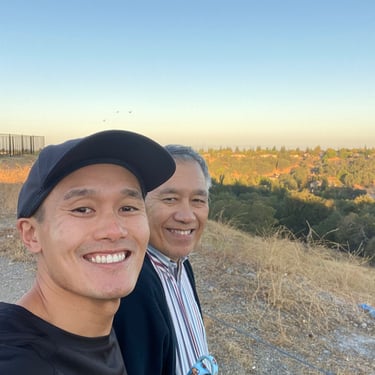
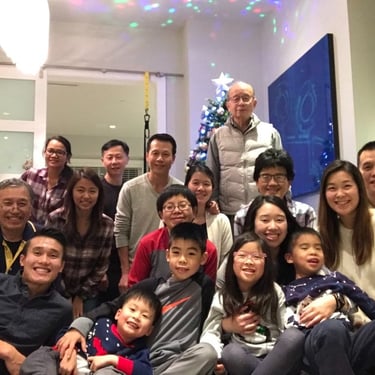
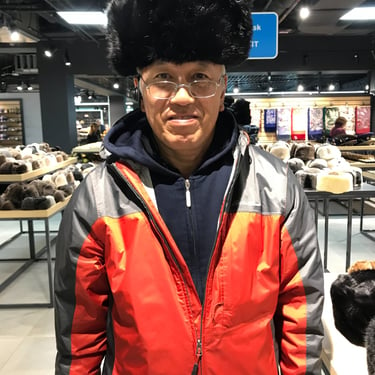
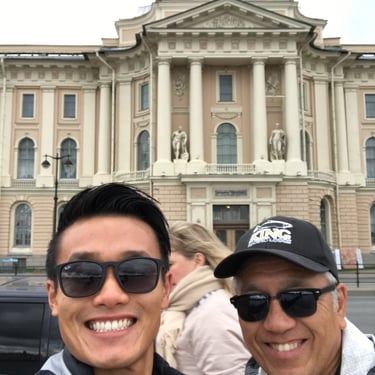
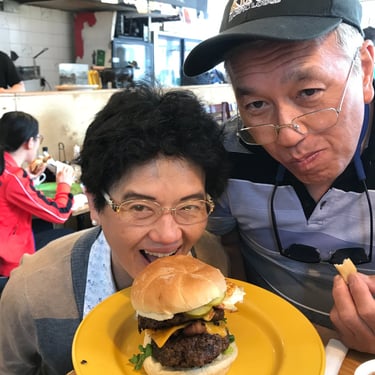
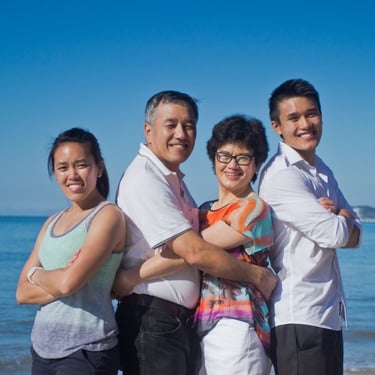
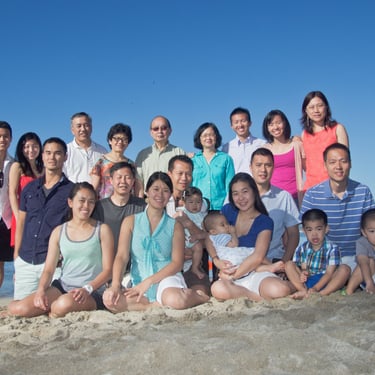
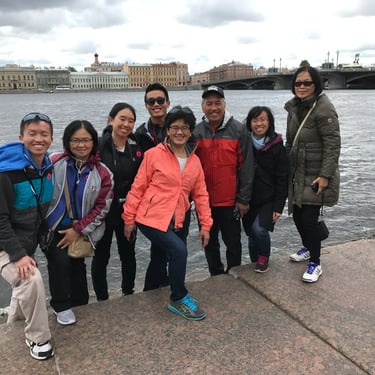
Lessons:
Tell the people that matter most to you how you feel and why you feel that way about them. We think that it’s obvious that the things we do (our actions) should be a dead give away as to how important someone means to us, but how do they really know unless we tell them?
It's ok to be vulnerable. As men, we're sometimes made to feel that sharing our feelings is worse than a colonoscopy (not that I've gotten one), but bearing all of our emotions doesn't allow others to help us when we need it.
Life is unpredictable and can be limited. Appreciate the small moments and be content, but don't delay gratification forever.
2023 has been a challenging and distressful year which has taught me a lot about my ability/inability to cope with stress, understand emotions and be vulnerable. My goal for the year was to leave the company I started in 2016 (and eventually sold in 2021) to travel through Europe for a couple of months before taking my dad on a month long road-trip through the US. One of his life-long dreams was to see the leaves change on the east coast during the fall, and I wanted to help him fulfill that dream. Our vision was to rent a camper-van and live the van-life with our two pups. However, life threw a curveball and I’m still at a loss as to how fu**ed up the timing was.
In June, my father was diagnosed with Lewy Body Dementia (LBD), which is a type of dementia that has unique progression stages which make it a difficult disease to cope with. At the time, it seemed like we had caught it pretty early on and had him appropriately diagnosed, but his condition continued to rapidly deteriorate over the coming months. He seemed relatively normal with small bouts of impaired memory, but nothing out of the ordinary. However, while I was away on a sabbatical in Europe, my family continued updating me on his condition.
Over the span of 1 month, he had become irritable, paranoid and experienced motor skills changes, increasing memory loss, and visual hallucinations. He began taking medication to calm the symptoms and I felt it would be ok to continue my trip through the end of August. I was burned out over the last six years and needed a mental break. Although the medication momentarily helped by addressing his immediate issues, his behaviour and demeanour continued changing. During the last few weeks of my trip, he started to require 24-hour supervision to ensure he didn’t fall or injure himself while moving around the house. This put a lot of pressure on my mother and sisters, and I felt terrible that I wasn’t there. I knew I couldn’t do anything to improve his condition, and I was also dealing with my own mental health issues and wasn't sure how best provide support. I felt selfish, sad, angry, frustrated, stressed, and ultimately helpless.
Once I returned from Europe, I tried to get as many resources together to help alleviate the stress my mom and sisters were under. I stayed with my dad and tried supervising him while taking on the additional responsibilities the best I could. It was quite the burden to bear, but we were eventually able to find him a care home to provide for his medical needs. Despite rotating through various medications and received round-the-clock medical care, the rapid progression of the disease made me realize that this was the beginning of the end. This made me reflect on the relationship that I have with my father all of these years.
I learned a lot from my father, in particular many values and principles that define a man who lives with integrity. While growing up, we never saw eye to eye and we constantly fought. It seemed he always wanted me to do things that I didn’t want to do and that I could never make him proud. As I've matured, I have come to understand the lessons that he was trying to impart on me. He was trying to teach me to be hard working, caring, understanding, determined, and humble. He lived by example and showed his character through his actions, but he never actually explained to me why he was so tough on me during my childhood. I believe our relationship would have been less fragmented if we had discussions of his values and principles rather than having to guess.
While reading "The Gift of You: How to Tell Your Loved Ones Who You Really Are" by Dr. Bill McCord, he discusses the importance of explaining who we are to the people we care about. He shares a number of thought provoking questions that made realize that I run into similar patterns in my relationships, where I assume everyone around me can see through the lens that I operate through. Rather than explaining or describing my thought process, I presume my purview is the only way to view a situation or action. This type of "miscommunication" has led to many confrontations that could have been resolved by discussing my intentions and thought process behind a particular action.
Lesson - Tell the people that matter most to you how you feel and why you feel that way about them. We think our actions or simply saying "I love you" explains how important someone means to us, but how do they really know unless we tell them?
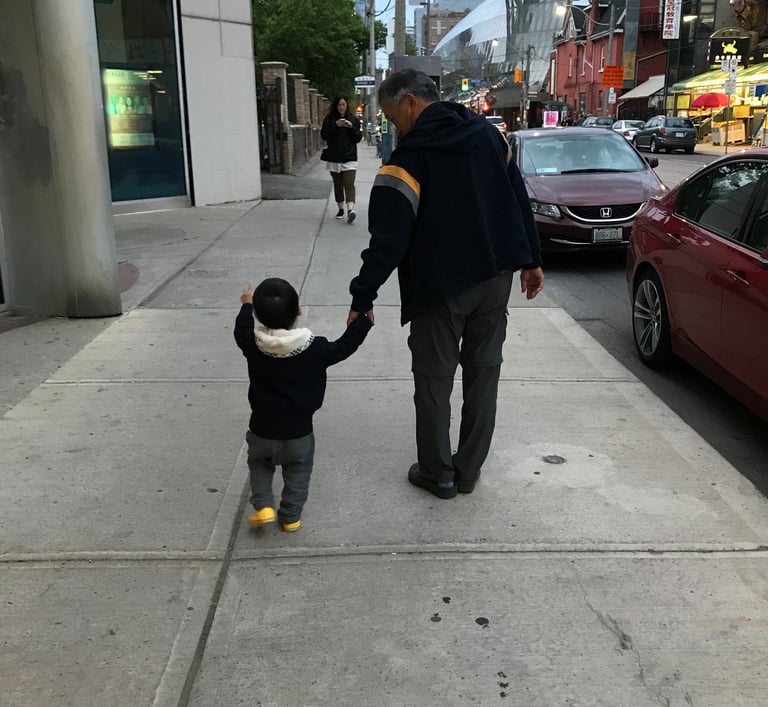

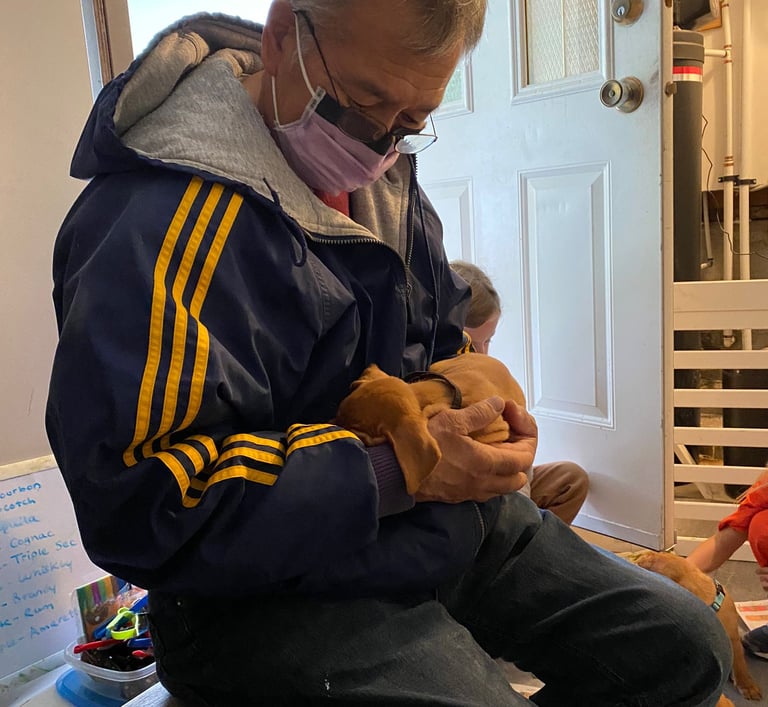

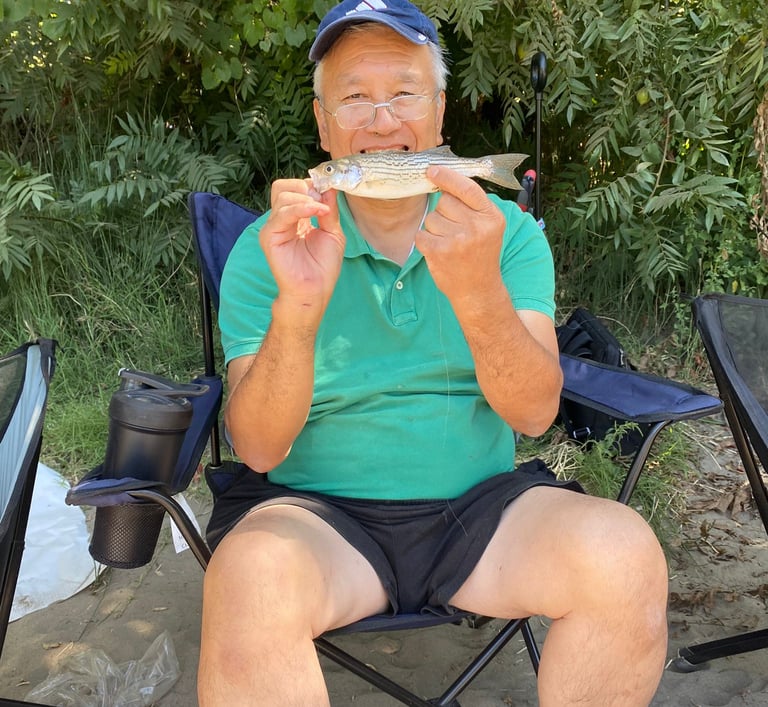

With the lack of communication between my father and I, we rarely expressed vulnerability. I only saw him cry twice in my life, which occurred at my grandparents' funerals and we never talked about our feelings or personal issues. I developed the mentality that sharing feelings verbally or physically could make me appear inadequate or less masculine. I have only cried on a handful of occasions since I left home at the age of seventeen, and the feelings of sadness, anger, frustration, inadequacy, and lack of confidence have bubbled up in various ways. I started experiencing bouts of depression, anxiety, explosive anger episodes, and physical ailments, such as severe hair loss and flareups of my Ankylosing Spondylitis. I regret that my past romantic partners had to deal with my lack of emotional availability and emotional intelligence. Had I done the work to understand the importance of self-care, I believe I could have been more supportive, kind, present, and less argumentative.
Over the last two years, through self-reflection, reading a lot of books, seeking therapy, and discussing my feelings more openly, I've started to develop strategies to cope with all of these feelings. It's unfortunate that a critical illness was the catalyst for me to speak openly with my father, but while caring for him, I had the opportunity to discuss some of the topics we never discussed - our passions, marriage, fatherhood, love, the meaning of life, etc. I’m not sure if my dad has any recollection of the things we recently talked about, but I wish I had been more willing to share my joys, fears, passions, and express how much he means to me.
Lesson - It's ok to be vulnerable. As a man, we fear sharing our vulnerability will make us less of a man, but in reality, bearing all of our emotions doesn't allow us to live to our potential. We need to bring others into our circle of confidence so that we can remain strong in the moments others need us. It's also never too late to start being vulnerable to those that you trust.
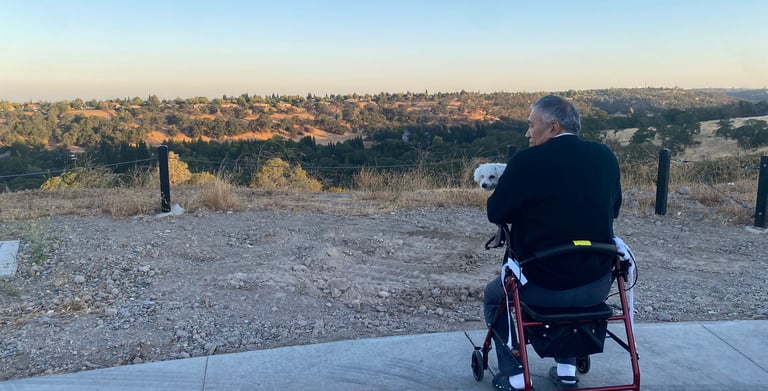

Ever since I can remember, he would never spend time or money on himself, delaying gratification was the name of the game. It appeared that he was so concerned about saving and looking at the future, that the present mattered much to him. Whenever I asked him if he wanted to go on a trip or go fishing (his favorite hobby), he always seemed to preoccupy himself with some other activity that was more productive. He would find home projects, fix issues at his rental properties, or somehow always be working on his taxes. After his diagnosis, his mobility became increasingly limited, so I would take him for walks or push him in his wheel chair. We spoke about whether he had any regrets in life and whether he would have changed anything in the past. He told me that he was content with his life and that he appreciated the times he travelled, fished, and spent time with family. Although he didn't have an opportunity to experience certain things or see parts of the world he desired, he was thankful for our family and the moments we shared together. In that moment, it hit me that my father had always been present and his contentment was a lived experience. Although his actions appeared to be focused on a distant future, his mind and soul was in the present, so he didn't have any regrets when he knew the experiences he once desired could not longer be realized.
My father is currently showing signs of the latest stage of dementia and we can only provide comfort care. It is frustrating and saddening that my father will never meet my future wife and his grandchildren (if/when that ever comes), we won't be able to complete our cross-country roadtrip, and we'll never be able to go fishing again, but I cherish the moments we shared together. I wish I had told him I loved him more often and was vulnerable with the joys and challenges I have faced. I regret not telling him how much I appreciate the sacrifices he made for me and our family and that I would be happy to be half the man he is.
I realize it is never too late to express our affection and care for someone else, but do it earlier rather than later. My dad is only seventy-one years old and I thought I would have at least another decade to share experiences with him, but it just isn't in the cards. I should have made more of an effort to reach out and made the time to be more present in those moments. I pray that I will not make the same mistakes going forward with those that I cherish.
Lesson - Life is unpredictable and fleeting. Appreciate the small moments and be content, but don't delay gratification forever.
